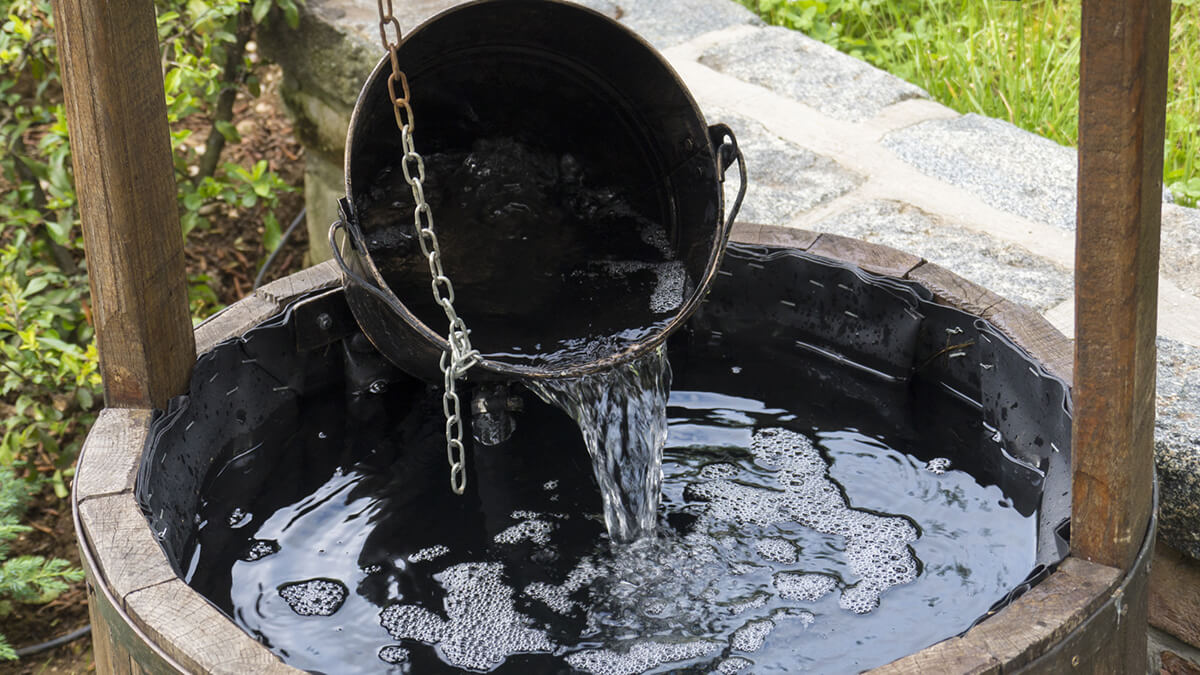Approximately 23 million households in the United States rely on domestic wells for their drinking water, particularly in rural areas where city water isn’t available. If you’re buying or selling a home with a water well, regular inspections are essential for ensuring the safety and functionality of your water supply.
In this article we’ll discuss the overall process of well and septic inspections in 2025, including costs, professional inspectors, and maintenance tips.
If you’re considering selling your home and want a hassle-free process, iBuyer.com can provide a quick and convenient solution.
Average Well and Septic Inspection Costs
Compare Cash Offers from Top Home Buyers. Delivered by Your Local iBuyer Certified Specialist.
One Expert, Multiple Offers, No Obligation.
How much does a well and septic inspection cost on average?
In the United States, the average cost of a well inspection ranges from $250 to $550. Many homes in rural areas rely on wells for their water supply and septic systems for wastewater processing.
Regular well and septic inspections are essential to ensure proper system functioning. The cost of a well inspection varies based on water tests needed, local market conditions, and whether it’s combined with another inspection.
During a well inspection, the inspector checks the condition of equipment and tests water safety. Water quality testing can cost an additional $100-$350, depending on the number and type of tests ordered.
Combining a septic and well inspection can save money, averaging between $400 and $650. General home inspections include a visual well inspection and may offer water quality testing, averaging $369 to $546. Additional travel fees may apply for remote locations, ranging from $1 to $2 per mile.
Buying a home with a well: What you should know
In some places, getting a well inspection as a part of a property changing hands might be required. These mandates vary at the municipal, county, and state level. If you are buying or selling a property, your real estate agent should know what the regulations are in your local area.
You can typically find a list of approved and certified inspectors at your local health department. The health department will need to review and approve the results after the inspection has been conducted. The home sale won’t be able to progress until this is done.
Your mortgage company also might require that your well and septic tank are inspected if you’re buying a home with a private well. Different lenders have different requirements in this regard.
If you’re wondering what you have to disclose when selling a house, check out this article.
Who do you call for a water well inspection?
Well inspectors are professional inspectors that specialize in inspecting wells. These professionals don’t, however, conduct well repairs because doing so could create a conflict of interest.
It isn’t unheard of for septic tank inspectors to also have certifications in well inspection. It is common for both of these systems to coexist on a property, so you might find that the same person who inspects your septic tank can also inspect your well.
Water quality testing might be offered for free at your local health department. That’s also a good place to look for a list of local inspectors that are able to provide in-depth well inspections.
Are you wondering what you need to know about selling a house with termites? Check out this guide.
Inspecting a well: What it entails
There are two parts to well inspections. A well inspector will both examine the equipment of the well in addition to testing the quality of the water.
As far as inspecting the equipment goes, the inspector will take a look at the well’s condition as well as the parts of the well. This includes the pump, storage tank, casing, vents, and cap. A visual check of screens, gaskets, seals, and overflows will also be done.
They will also make sure that your system, the area around the well, and the source of the well are compliant and up to code.
Well inspectors will keep an eye out for common problems that can lead to health issues. This includes low-pressure levels, rust on the pressure tank, cloudy water in the well pipes, and faulty gauges.
For the water test, your well inspector will take well water samples after physically inspecting the well. They will then send the samples to a state-certified lab. Harmful bacteria and microbes will be tested for as well as contaminants, toxic substances, and levels of other substances.
A report of your water test results will be provided once the lab has analyzed your samples. You will also receive a report from the inspector about their evaluation of the system.
In some places, you will be required to give this information to your local health department for their approval. You will have to take corrective action if it isn’t approved so that the safety of your water supply is ensured.
Well maintenance tips
Staying on top of inspections and maintenance is important if you want to avoid costly repairs to your well. You will also want to have your water tested every year for at least the following:
- Nitrates
- Coliform bacteria
- Dissolved solids
- pH
You will also want to run quality tests in addition to annual testing when:
- You replace well pipes, casing, or pumps
- You build a new well
- You notice an odd taste, smell, or staining
- You have a young child living in the home or a new baby on the way
- You’ve dug or drilled near the well
- There’s been a fuel spill or chemical or leak nearby
There are a number of different possible opportunities for contamination that you’ll want to keep an eye out for. These include:
- Chemicals stored near the well
- Breaks in the well cap seal
- Livestock pens or kennels near the well
There are a number of other guidelines you will want to follow to keep your well system functioning properly and safely. These are:
- Clear plants from the wellhead
- Make sure that the ground slopes away from the wellhead
- Don’t dispose of waste in the well
- Avoid using degreasers, pesticides, fertilizers, or any pollutants near your well
- Don’t use harsh chemicals in your septic system
- Pump and inspect your septic system regularly
- After a flood or other natural disaster, be sure to consult local experts
The cost of repairing a well can vary greatly depending on the work that needs to be done. The cost of replacing a well pump typically is between $1,000 and $2,750.
One of the more costly repairs that can be done is replacing the storage tank, which is around $2,000 on average. As you can see, it is well worth the time and money to maintain and inspect your well regularly. Otherwise, the repairs you could be faced with could be much more costly.
Is it time for you to sell your home?
The process of buying and selling a home can be time-consuming and stressful. All of a sudden you’re asking questions you never even thought of before, such as “how much does a water well inspection cost?”
If you’re buying a property in the country, there’s a good chance you’ll have a private well rather than municipal water services. Many people prefer having a private well, but it’s worth learning about these systems and the maintenance they require so that you can keep everything running in good working order.
When it comes time to sell your home, there’s a good chance you’re dreading the whole process. However, selling your house doesn’t have to be a big headache anymore when you sell to an iBuyer.
Are you curious about how much an iBuyer would offer to pay for your house in cash? If so, check out our home value estimator here!
Instant Valuation, Confidential Deals with a Certified iBuyer.com Specialist.
Sell Smart, Sell Fast, Get Sold. No Obligations.
Reilly Dzurick is a seasoned real estate agent at Get Land Florida, bringing over six years of industry experience to the vibrant Vero Beach market. She is known for her deep understanding of local real estate trends and her dedication to helping clients find their dream properties. Reilly’s journey in real estate is complemented by her academic background in Public Relations, Advertising, and Applied Communication from the University of North Florida.




